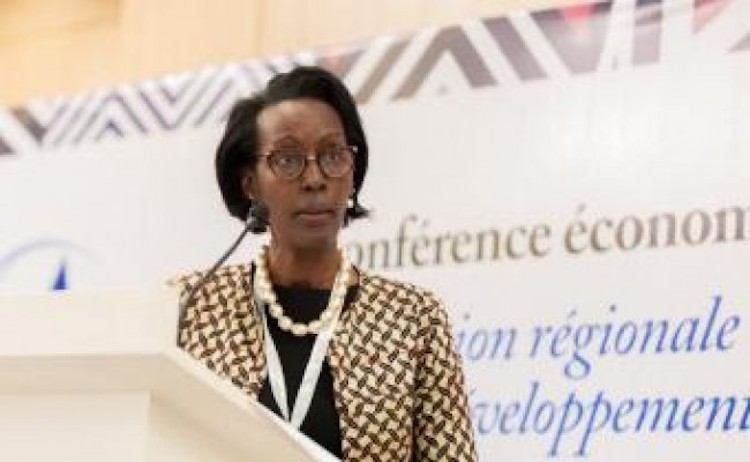By Ronald Joshua
KIGALI (IDN) – Africa’s “easy decade” of accelerated economic growth is coming to an end, and only accelerated job creation and integration will ensure sustainable growth and development across the continent, Prof. Paul Collier, one of the world’s most influential development economists has warned.
A Professor of Economics and Public Policy in the Blavatnik School of Government at the University of Oxford, Collier was delivering a keynote address at the African Economic Conference 2018, hosted by the African Development Bank, the Economic Commission for Africa and the United Nations Development Programme (UNDP) in Kigali, Rwanda.
He was speaking on December 3, the first day of the three-day Conference, during a high-level panel on Drivers, Opportunities and Lessons for Africa’s integration, comprising experts as well as high-level policymakers, who provided their reflections and perceptions on regional and continental integration.
“Africa’s easy decade is over; but the last decade of African growth was not sustainable. Now Africa must focus on its big resource – its young people. No other continent has anything like such a huge influx of young labour. Productive jobs are the priority,” Collier said at the conference under the theme: Regional and continental integration for Africa’s development.
“Young people can’t create priority jobs by themselves. Those jobs have to be created, so the prime task of policymakers in Africa over the next decade is to create productive jobs for young people at a rate that has never happened before.”
Collier added that connectivity between African countries will unlock the potential of many countries, and this connectivity has to be in terms of both physical transport and political ideology.
“Small countries are doomed to poverty unless they have open markets and free societies. And yet, the typical African country is small, with closed markets. That is a disastrous combination. So the African Continental Free Trade Area is a very important step forward,” he said.
Another high-level panelist, Professor Ademola Oyejide, the Emeritus Professor of Economics, University of Ibadan and Chairman of the Centre for Trade and Development Initiatives, noted that regional integration must drive overall continental integration.
“We should not destroy regional economic communities by protectionism and unnecessary barriers to trade. We as African leaders are not in the business of designing theoretical regional programmes: we expect real progress from the regional blocs,” he said.
Professor Klaus Zimmermann, President of the Global Labor Organization, added, “Africa is now on the right path and has to move in the direction of the AfCFTA. One of the most important playing cards in this game is the people of Africa.”
ECA Deputy Executive Secretary, Giovanie Biha, who was also on the panel supported calls for the continent to prioritise its youth by making sure the African Continental Free Trade Area (AfCFTA) helps create opportunities for sustainable companies that will in turn create jobs for Africa’s youth.
In her opening remarks, Biha said it was time everyone interested in Africa’s future and the continent taking its rightful place on the global arena galvanized around the AfCFTA. “I urge all interested in building better lives across Africa to collectively promote the AfCFTA through our respective national legislative processes,” she said.
“The significance of the AfCFTA achievement is not to be underestimated. Overall, the vision of African continental integration to which the AfCFTA aspires is over 50 years old. It originates in an appreciation that the political independence achieved with decolonisation would be ineffective in realizing a better life for the peoples of Africa unless consummated with economic independence.”
Biha said as with political independence, this ‘economic decolonisation’ was thought to be best leveraged through a regional approach. She said it was impressive that most African countries, despite their differences, have been able to seek compromise, broker agreement, and come together with a single legally binding treaty that aspires for the full potential of economic integration in Africa.
Biha said for the AfCFTA to “Leave no one behind”, the agreement needs to be approached strategically. “For the AfCFTA to truly deliver on expected transformative objectives, it will be necessary to ensure that the benefits are indeed shared. This includes a special attention on gender equality, among other issues of inclusiveness, in the AfCFTA process,” she said.
The ECA has already began assisting African countries to develop national AfCFTA implementation strategies that will complement the broader trade policy of each country and identify key trade opportunities, current constraints and steps required to take full advantage of the AfCFTA. The national strategies will also provide guidance on how to set up AfCFTA national implementation committees.
“Together, with other partners ECA stands ready to further ensure a successful AfCFTA that delivers upon its aspirations and the achievement of Agenda 2030 and Agenda 2063, for the Africa We Want,” said Ms. Biha.
A common message from other high-level panelists, such as Prof. Emmanuel Nnadozie, the Executive Secretary of the African Capacity Building Foundation, was that governments must adopt policies to enable their countries to achieve economic diversification and reduce their dependence on primary commodities.
The Continental Free Trade Area is expected to boost intra-African trade by up to $35 billion per year, creating a 52% increase in trade by 2022; and a vital $10 billion decrease in imports to Africa. [IDN-InDepthNews – 04 December 2018]
Photo: Deputy Executive Secretary Giovanie Biha of the Economic Commission for Africa (ECA). Credit: Encomium Magazine.
IDN is flagship agency of the International Press Syndicate.
facebook.com/IDN.GoingDeeper – twitter.com/InDepthNews

